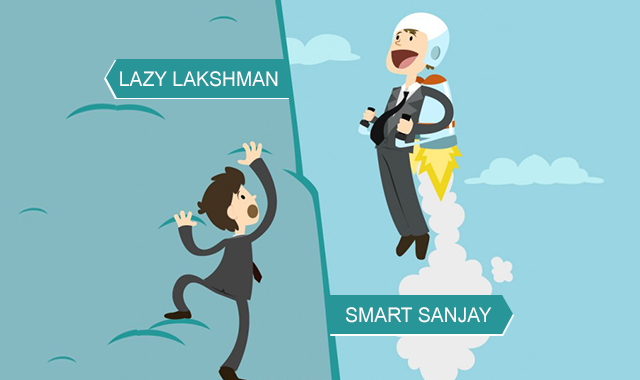
Did you know that even as a kid in school we had a portfolio of investments? We’d divide our pocket money to get our candy and our favorite cake, sometimes we would have small savings to buy those shoes, or even loan it to a friend for a while. So as we grow our portfolio becomes bigger in terms of scale and range of investments. We focus more on security and future. But how much of our total portfolio should go into these channels? Why do we have to have debt instruments? Diversification was the first rule learned in investing. The story of when we put all our eggs in one basket and it all breaks when the basket falls down, is familiar to all investors. But perhaps you never got to the part of hstow many eggs and in which basket should we put it in.
Debt is the basket which offers you security. But the word itself doesn’t give a ring of security because it is often associated with words like ‘loans’. In truth, however, it is essential for every person to invest in some debt instrument in his lifetime. The different products include Public Provident Fund, Fixed Deposit, Bonds, etc.
So when it comes to giving a slice of your portfolio towards debt instruments here are a few things to keep in mind:
- The choice of the debt instrument is vital. So ask yourself what do you want it to do? The answer should either be to providing money on short notice or provide stability to long-term investments, both of which is given by debt instruments.
- Focus on just the top debt instruments and leave the rest. If you try to pick too many of debt funds you tend to have a mediocre investment which gives high safety but low returns. Don’t try segregating eggs in that debt basket so much.
- The allocation of your investment in Debt instruments should be in proportion to your age. The younger you are, the better it would be to invest in growth-based schemes(equity). When you get older you must focus more on stability(debt).
When it comes to Provident Fund or Pension Fund, that are retirement schemes by the Government of India, its sole purpose is to set aside money from a person, preferably during his employment and return it back in a lump sum along with a small amount of interest.
The Public Provident Fund is one of the kinds of PF accounts for any individual at any age, even for an infant. The greatest benefit of this is the returns which are completely tax-free. The account stands as your loan to the Government at the advantage of receiving a tiny amount of risk. It allows you to invest a minimum of Rs.500 to a maximum of Rs.1.5 lakh per year so as to ensure the account remains active for the lock-in period of 15 years. The PF or Pension Funds are to safeguard your lifestyle after retirement, but they are not the only debt instruments you can rely on. Read more about PPF on the MyWay Wealth website.
A Fixed Deposit is a popular stowaway for your money which saves upon a fixed rate of return during its term. It is applicable for tax and is affected by inflation in the market. It is suitable to use as an emergency fund. Suppose you have a wedding to host or pay for your parent’s medical bills it can be immediately withdrawn to meet those expenses at a reasonable penalty. Whereas, as an investment, it is not a suitable option as it guarantees neither safety nor growth. To know more read the article at MyWay Wealth’s Blog about Fixed Deposits.
It’s quite a dilemma, isn’t it? The PF or PPF is an important long-term savings scheme for a retirement corpus. However, as mentioned before if the expectation from your debt basket is to help in cases of emergencies a Fixed Deposit would work much better. The PF focuses to help you in the long term and the FD will be more reliable as an emergency cell. Click here to know more on that.
Wouldn’t it be great to have one that serves as both in the long-term and act as an emergency fund? In uh a case Mutual Funds are the way to go! Specifically, the Debt Funds in the Portfolio that invest mainly in bonds, giving you security, relatively higher returns, and high liquidity.


























